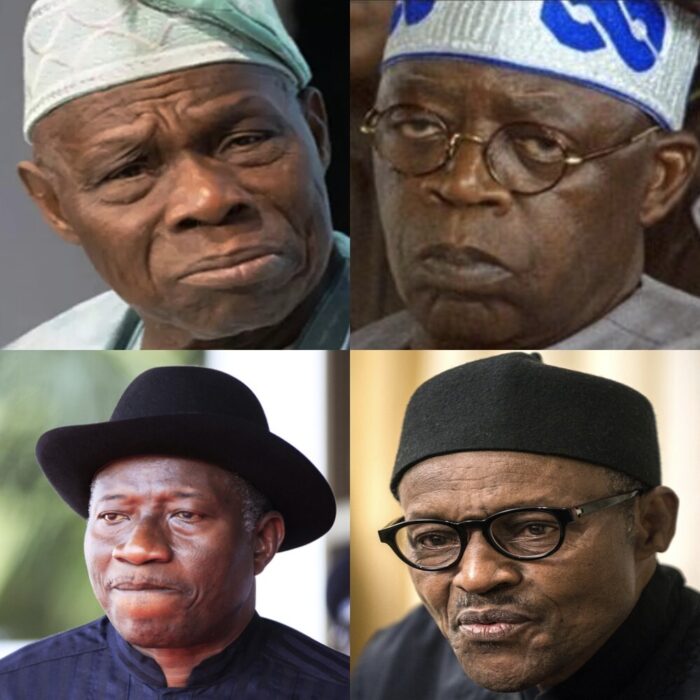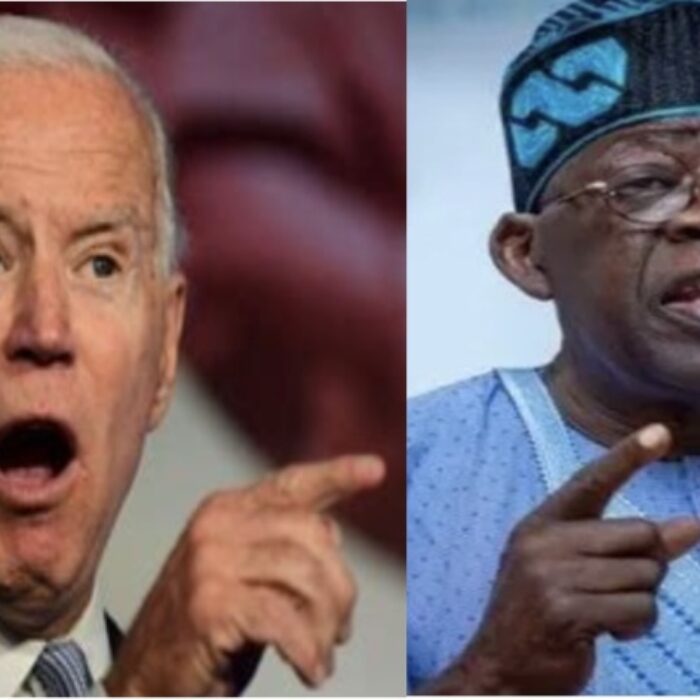By Nnaoke Ufere, PhD
They inhabit a realm of opulence—a world where exotic cars, private jets, lavish Houston mansions, majestic Banana Island and Maitama palaces, and exclusive penthouses in New York, Dubai and London are the norm.
Their vacations whisk them away to Dubai’s glittering shores, opulent homes in Los Angeles, London’s exclusive Mayfair district, and luxurious villas in Miami or the French Riviera.
Their education, when they possess the aptitude and dedication, takes place within the prestigious halls of elite private colleges and universities in New York, Massachusetts, California, Switzerland, and London.
Their social media feeds are a testament to their extravagant lifestyles—flaunting luxury cars, designer wardrobes, glittering custom-made jewelry and closets brimming with expensive shoes and exotic handbags. They enjoy the rarified lifestyle of the rich and powerful.
Their prom nights, held at elite venues in Lagos, Abuja, Benin City, and other high-end locales, are truly spectacular events. They arrive in grand style, chauffeured in convoys of luxury vehicles, including Lamborghinis, Porsches, AMG Mercedes, Range Rovers, and even Rolls-Royces, making a lavish entrance that showcases their grandeur and extravagance.
Many of them who claim on social media to own businesses prosper through nepotistic practices and lucrative deals through shell companies that blatantly defy conflict of interest principles.
They epitomize all that is wrong with Nigeria. They are in-your-face extravagant, raw, rambunctious, arrogant, status-conscious, praise-seeking, and entitled. They lack nothing. Their ego and self-importance are their trademark.
If there’s hunger in the land, if there’s inflation, if there’s unemployment, if there’s suffering, they remain blissfully oblivious, insulated from the harsh realities faced by the masses, and only concerned with perpetuating their own privilege and power. To them, protest is for losers.
My fellow Nigerians, there’s no need to guess who I’m describing; these are the Nigerian children of decadence, basking in the glow of unbridled wealth and extravagance. With their parents, they bestride Nigeria like colossi, wielding immense power and influence over its political, economic, and social life, often dictating the course of the nation’s future.
The staggering wealth of some of these minority families, which might seem inexplicable at first, can largely be attributed to kleptocracy—a system where governance is conducted by those who seek personal gain at the expense of the governed.
This system often involves looters, oil thieves, subsidy and tax revenue embezzlers, pension fund swindlers, public property plunderers, bribe-taking politicians, corrupt bureaucrats, and exploiters of patronage-based monopoly businesses.
To be clear, there are a few genuinely wealthy individuals among them, whose fortunes are built on legitimate business ventures and hard work. However, the ostentatious display of wealth by many in this group raises concerns about the sources of their affluence, particularly in a country where poverty and economic inequality remain rampant.
While children may not be prejudged by their parents’ behavior, their social media activity often reveals influences that reflect the environment in which they were raised. The insensitivity and recklessness of their posts expose underlying corrupt values absorbed from their upbringing.
In any case, this is a generation raised in decadence. Their parents are predominantly influential politicians and crony capitalists, who wield significant control over lucrative government contracts and monopoly rights that they have not justly earned.
They dominate key industries and supply chains through monopolistic enterprises, secured by political patronage and state capture. Furthermore, it is alleged that they occupy executive and controlling positions in prominent banks, which are reportedly used to launder illicit funds and commingle counterfeit foreign currencies.
They are major oil thieves, disguising themselves as legitimate oil marketers while exploiting their monopoly to extract enormous profits from government fuel subsidy programs and resale contracts. These parents are corrupt profiteers.
At minimal cost, they exploited their political power and influence to acquire vast tracts of prime land in cities like Lagos, Abuja, Kaduna, Port Harcourt, Enugu, and Uyo, often displacing poor communities in the process. Using their political connections, they steer government investments toward these lands at inflated prices, transforming these essentially stolen properties into assets worth many times their original acquisition cost.
Additionally, they secretly own prime real estate assets along the most prestigious avenues in the capitals of America and Europe and in Dubai, through intricate networks of shell companies to maintain anonymity. For instance, one of the most expensive homes sold last year for an exorbitant sum (over $7 million) in Atlanta’s exclusive Buckhead area was purchased on behalf of a high-ranking Nigerian politician.
This web of power and wealth enables these elites to maintain a stranglehold on the economy, perpetuating a system of cronyism and nepotism that undermines equal opportunity, equity, fair competition, and reinforces their elite status.
Like parents, like children
Now that you know who their parents are, let’s turn our attention back to the children. The Igbo people have a proverb: “Ihe agwọ mụrụ aghaghị ito ogologo,” meaning that what a snake gives birth to will inevitably be long—in other words, a snake begets another snake.
Children raised in a cesspool of malfeasance and decadence will inevitably grow up to embody and perpetuate the same corrupt values and behaviors, ensuring the continuation of this cycle of moral decay.
A glimpse into their social media profiles and posts reveals a disturbing ambition to follow in their parents’ footsteps, seeking to dominate both politics and business. This perpetuation of power and influence threatens to entrench a dynasty of corruption, ensuring that the cycle of malfeasance continues unabated.
Empowered by vast financial resources, extensive influence, and unchecked power, the children of privilege are strategically positioning themselves to seize pivotal roles, including the presidency, governorships, National Assembly seats, cabinet positions, and leadership of key agencies.
The implications are dire: their unbridled extravagance and moral bankruptcy could catastrophically undermine the nation’s leadership and governance. It’s a grim understatement to suggest that their political aspirations spell disaster for the nation.
History shows that when the children of corrupt leaders inherit power, they often exacerbate corruption, mismanagement, and inequality. For example, Jean-Claude Duvalier in Haiti continued his father’s brutal regime, while Teodoro Obiang Mangue in Equatorial Guinea mirrored his father’s corruption. In Iraq, Uday and Qusay Hussein, along with Romania’s Nicu Ceaușescu, were known for their brutality and decadence.
The Mobutu family in Congo plundered resources, North Korea’s Kim Jong-un and Syria’s Bashar al-Assad maintain authoritarian rule, and Azerbaijan’s Ilham Aliyev and Togo’s Faure Gnassingbé have been linked to corruption and human rights abuses.
Imagine a Nigeria where the offspring of kleptocrats dominate, deepening inequality and corruption. Such a future threatens to trap the nation in a dynastic kleptocracy, making it crucial for Nigerians to demand accountable and inclusive leadership.
To effectively address the damaging influence of the children of decadence and their corrupt parents, a series of decisive and immediate actions are essential. But don’t expect the Tinubu administration to implement these changes. These changes are for the new Nigerian president in 2027.
1. Immediate Financial Audits and Asset Freezing
- Establish Special Independent Financial Audit. The new president must initiate a Comprehensive Financial Audit (CFA) of the assets held by all politicians, ministers, top government officials, senior military officers, ambassadors, heads of government-owned enterprises, agency heads, and parastatals, including the NNPC, both current and past, as well as their relatives and business partners. This audit should encompass properties, bank accounts, and any other financial holdings, both domestically and internationally.
- Asset Freezing and Seizure: Legal measures should be implemented to freeze and seize assets acquired through corrupt means. Any asset values exceeding declared income on multi-year tax returns must be thoroughly investigated. These assets should be reclaimed by the state and redirected towards public welfare projects.
2. Immediate Removal from Public Office
- Disqualification from Holding Public Office: Introduce or enforce legislation that disqualifies individuals with a history of benefiting from corrupt practices from holding public office. This can be done through a vetting process where the backgrounds of candidates for public positions are thoroughly scrutinized.
- Immediate Dismissal from Positions: For those already in office, initiate legal processes to remove them immediately if they are found to have engaged in corruption or unethical behavior. This should be followed by a lifetime ban from public service.
3. Establish a Special Anti-Corruption Tribunal
- Create a New Powerful Special Tribunal. Immediate upon taking office, the new president must establish a specialized task force with the sole purpose of investigating and prosecuting corruption nationwide. This task force should be empowered to utilize advanced surveillance technologies to monitor financial flows both domestically and in collaboration with international financial crime agencies. It must act swiftly and decisively, leveraging support from both domestic and international legal frameworks. The EFCC, having become a source of corruption itself, should be disbanded.
- Fast-Track Prosecutions: Set up fast-track special courts or legal processes to expedite the prosecution of these individuals, ensuring that justice is delivered swiftly. These special tribunals must be vested with legal authority and their decisions can’t be challenged on technicalities.
4. Public Exposure and Transparency Campaigns
- Public Disclosure of Assets: Mandate immediate public disclosure of all assets owned by these individuals. This should be done through official channels and widely publicized in the media to ensure transparency.
- Media Campaigns Against Corruption: Launch media campaigns that expose the excesses and corruption of these individuals, educating the public about the consequences of their actions and mobilizing public opinion against them.
5. Enforce Strict Ethical Standards for Leadership
- Mandatory Ethical Leadership Programs: Require immediate participation in intensive ethical leadership training programs for politicians currently holding or aspiring to hold public office. These programs should be designed and monitored by independent bodies to ensure effectiveness.
- Zero Tolerance Policy: Implement a zero-tolerance policy for any unethical behavior, with immediate consequences such as removal from office and prosecution.
6. Immediate Return of Misappropriated Funds
- Compulsory Repatriation of Stolen Funds: Enforce laws requiring the immediate return of any misappropriated funds held by these individuals. This can be facilitated through agreements with foreign governments and financial institutions to repatriate stolen wealth.
- Redirect Funds to Public Welfare: Use the recovered funds to finance urgent social and economic development projects, such as healthcare, education, and infrastructure, which can provide immediate relief to affected communities.
7. Implement Strict Inheritance Laws
- Revise Inheritance Laws: Pass laws that limit the inheritance of wealth obtained through corruption. This could include the establishment of legal frameworks that require wealth acquired by corrupt means to be forfeited to the state.
- Immediate Application to Known Cases: Apply these laws immediately to the children of known corrupt leaders, ensuring that they cannot inherit or transfer corruptly acquired wealth.
8. Strengthen Civil Society and Whistleblower Protection
- Empower Civil Society Organizations: Provide immediate support to civil society organizations across the country that monitor and report on corruption, ensuring they have the resources and legal protections needed to operate effectively.
- Enhance Whistleblower Protections: Strengthen and enforce laws that protect whistleblowers who expose corruption linked to these individuals, ensuring they are safe from retaliation and are incentivized to come forward.
9. International Sanctions and Travel Bans
- Immediate Travel Bans and Sanctions: The new president must work with international partners to impose travel bans, asset freezes, and other sanctions on these individuals, preventing them from accessing international networks to hide or launder their wealth. The names of top Nigerian offenders are well known to international financial crimes agencies.
- Collaboration with International Agencies: Collaborate with agencies like Interpol, FBI and the United Nations to track and restrict the international movement and financial transactions of all politicians and government officials and their agents.
10. Community Engagement and Restitution
- Immediate Restitution to Affected Communities: Implement programs that directly compensate communities that have suffered under the rule of these decadent leaders. This could include financial restitution, public apologies, and the rebuilding of local infrastructure.
- Engage Local Leaders and Citizens: Involve community leaders and citizens in monitoring and reporting on the behavior of these individuals, creating a bottom-up approach to holding them accountable.
These targeted actions are designed to directly confront the consequences of leadership by corrupt politicians and their children of decadence, ensuring that they are held accountable and that their influence is curtailed to prevent further damage to the nation.
Positive Development
The good news is that some Nigerian children born into wanton wealth have seemingly distanced themselves from the excesses associated with their parents’ fortunes. For instance, some have chosen to pursue careers in philanthropy, focusing on social causes rather than living lavish lifestyles.
These individuals represent a shift among the younger generation, where a sense of responsibility and a desire to contribute positively to society are beginning to overshadow the allure of their inherited riches. However, it remains to be seen whether this trend will have a lasting impact on the broader culture of wealth in Nigeria.
In conclusion, the cycle of decadence must be broken if Nigeria is to survive and thrive. In this essay, I have highlighted the dangers of this decadence and proposed strategies to combat it.
Unfortunately, we may have to wait until 2027, when Tinubu and his allies are potentially removed from office—if the Nigerian people are wise and bold enough to elect a genuine leader. In the meantime, let’s focus on celebrating those young individuals who are channeling their wealth into serving the nation.




